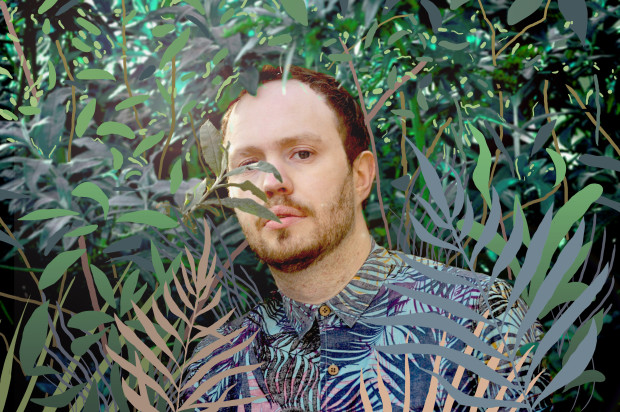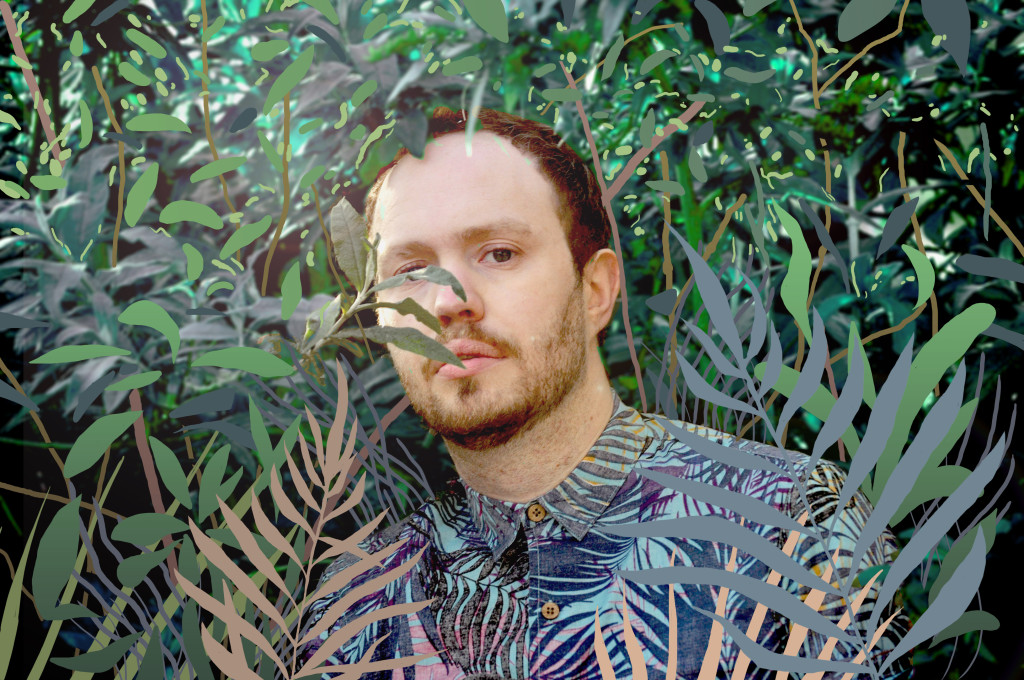Bear Worship is the new project from Irish musician Karl Knuttel, who has previously performed as Pinkie and as Ivan St John. Here, he talks about his love of synthesisers, making music out of necessity, and the benefits of being ‘ridiculously controlling’. Words by David Turpin.
You’ve said that Bear Worship emerged out of a time of anxiety and depression, and yet the music is far more dreamlike than nightmarish, and far more expansive than claustrophobic. What do you mean when you say it was made “out of necessity”?
You know, anxiety is a harrowing experience. It’s not at all like the feeling you get before a job interview or something, but is this totally intense state – it feels like you’ve just snorted ketamine up one nostril and coke up the other. But it’s your brain bringing on this effect. With drugs you know they’ll wear off. When it’s your brain doing it you question whether you’re going crazy and whether it’ll ever end. There’s this cliché that art is cathartic and I think this is true. But pursuing art and your relationship with it can be responsible for a lot of suffering – another cliché, maybe. For me, making music is inevitable and comes with this feeling of necessity, I can’t not do it. When you’ve spent your life making music it defines how you come to understand yourself as a person. But then you turn 30 and a whole bunch of new pressures reveal themselves, and you realise music is probably a pretty bad career choice. It’s the Chris Rock thing of “shit, I could actually become homeless”. So as the dream falls away so does a huge part of who you are and you’re forced to confront this void. But still, you can’t not make music. And it’s making music that’s bringing on this crisis. Ultimately I realised I needed to reconfigure my relationship with music, to try to use it as a means to confront and overcome that feeling of purposelessness.
Describing the themes behind Bear Worship, you comment that “while everything is ultimately a waste of time, what a wondrous waste of time that is”. Obviously, that’s a worldview as much as anything else, but how does that idea translate into the actual sound of the music? It seems to me that the songs are very diaphanous musically and very specific lyrically.
Life is basically a succession of experiences which occur in the present and whose meanings and purpose rarely carry over. If you don’t value the meaning of those experiences as they happen they’ve been time wasted. If you do value them, engage with them, and find meaning in them, then they can be wondrous, but still technically time wasted in an absolute sense. What makes art Art is that it’s for its own sake – you have to engage with it for it to have any value at all. Sonically I went for something that rewards repeated listening. There’s so many layers of stuff, suspense and payoff, and hidden sounds. My favourite records are the ones you find new stuff in on each listen, but that also envelope you and make you feel like you’re bathed in sound. By the end of them you feel that you’ve travelled a distance. Lyrically I went for the same approach – but the great thing about lyrics is that they depend so much on the person hearing them. They can be deconstructed and reinterpreted. I find writing lyrics really difficult and I can spend a long time revising them or rewriting them. Sometimes it’s good to be specific, but other times it’s more fun to be ambiguous, to go for a feeling rather than something concrete.
You’ve previously recorded under the name Ivan St. John, but Bear Worship is a new departure – not least for the emphasis on synths. What is it that attracts you to synth sounds?
I think synths represent the blankest canvas you can work from, sonically. You can essentially author sound from its basic building blocks on up. It’s this idea that humans have created a brand new way of making noise that has its roots in nature but is at the same time entirely artificial. Not to get too absurd, but the most fundamental state of reality is vibrating fields of energy – existence is a collection of frequencies and everything is continuously oscillating. Sometimes we’re in harmony but it’s unsurprising that we’re often discordant socially and personally. But yeah – I love the sound of synthesizers. There’s something deeply nostalgic but at the same time futuristic about them. I’ve gotten really into 70s and 80s soundtracks, stuff like Carpenter, Vangelis, DiCola, Moroder. The music still sounds futuristic and vaguely dystopian, but like an alternate future as seen from the past. And 80s, 90s and 00s electronic stuff. There’s so much amazing music. Also, I love arpeggios. Love them.
How does the recording process work for you?
I work mostly alone and do the vast majority of the tracking at home. I use a mix of real synths and VSTs, but I try and use as much ‘real’, hardware stuff as I can. Working alone is pretty isolating but I’m ridiculously controlling and meticulously. For instance, sometimes it can be 2am when I finally get the right vibe for a vocal. For this bunch of songs I worked with Stephen Shannon (Strands) who was really great. By the end of the recording process we’d worked out a really good relationship and method. I’d record synths, guitars, bass and most vocals at home and program the drums on a drum VST, and then I’d bring the stuff in to Stephen and we’d record real drums in his place, record any extra stuff we needed, and then he’d edit and mix everything. Stephen spends a lot of time on getting the drum sound right, and I reckon once you have a great drum sound you’re 50% there, at least. We’d also bounce a bunch of ideas of each other for padding out the textures of the songs – just little layers and added bits of interest. It was very collaborative.
Bear Worship is unusual, in some respects, in that the music has emerged fully formed as recorded material in advance of any live performances. For many acts, of course, the opposite is the case. Was there a reason you decided to work this way? And do you plan on translating Bear Worship live?
I am more of a record person than a live person. I like live shows, but I just think all the good stuff is there on the record and often the coolest stuff is not replicable live. There’s maybe a handful of gigs I’ve been to where I’ve been absolutely blown away by the sound. So many sound systems are substandard and if you’re about making sonically interesting stuff, I don’t see the point in playing in that environment. I’ve played hundreds of shows all over the place in the past. I’ve played in crusty dives with distorting speakers, and in places with amazing sound systems. I really enjoy gigging, but it costs a lot of money to do, particularly if you’re not backed by a label, so I think I’ll have to be very selective about live shows.
Finally, because people might be wondering – Bear worship (or arctolatry), as a religious practice, has existed as long ago as the Paleolithic, and bears have religious significance from the ancient Greek cult of Artemis through to the Christian St. Gall. Were there any particular associations you wanted to create by using Bear Worship as a name?
Bear worship has this whole mystery surrounding it, a sort of ambiguity about the significance of it. But like you say, it’s this practice that has gone on from our deepest prehistory right up to present day from North America, through Europe, and even as far as Japan. It’s like the remnants of our ancestral hominid lineage. I’d love to say that there was a deeper meaning about the name, but I kind of just liked the sound of it and the feeling it inspires when you hear it. Maybe a lot of that feeling is to do with the mystery surrounding bear cults, maybe a sort of deep psychological ingraining of an ancient practice. But most likely not. I later learned that bear worship has, shall we say, more fetishistic or subcultural connotations. I like that, but it wasn’t part of my original intention. I like ambiguity though so read what you will out of it.
Bear Worship’s Double-A-side Our Friends/Pagodas is out now. An album will follow later in 2016.






